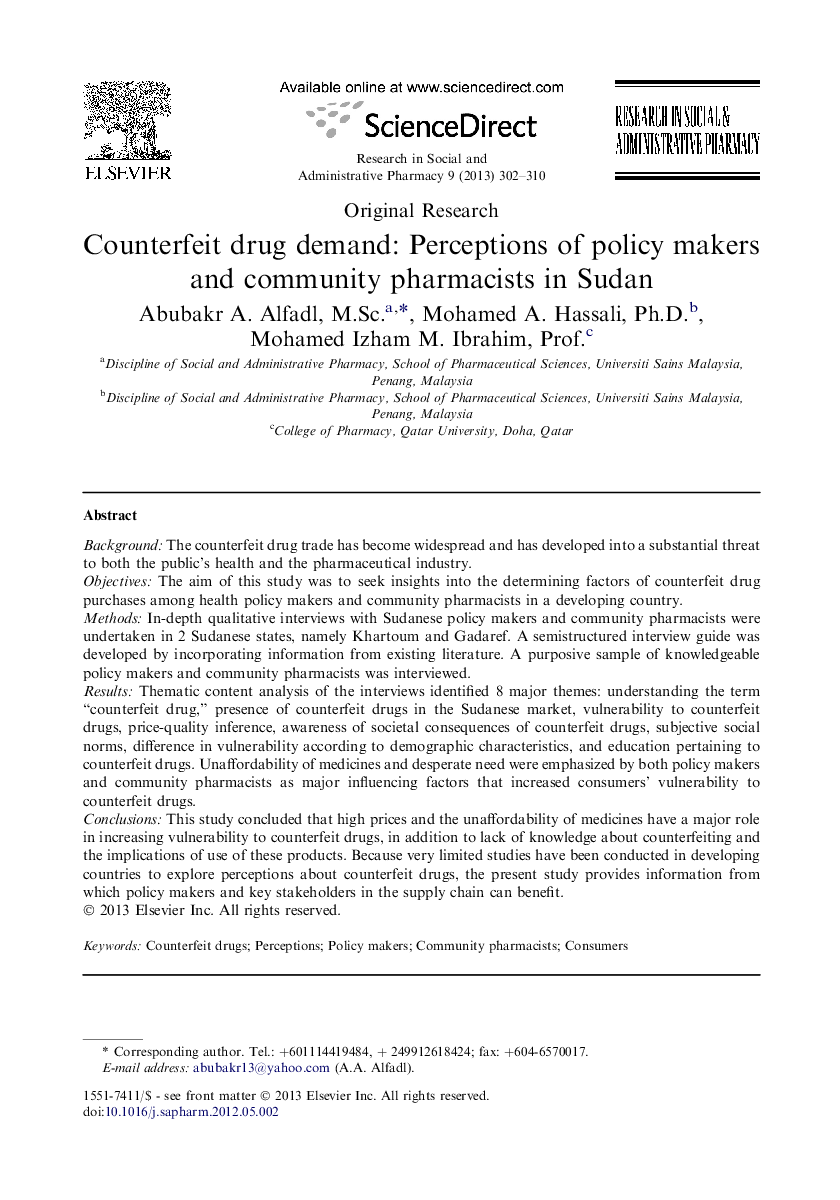| Article ID | Journal | Published Year | Pages | File Type |
|---|---|---|---|---|
| 2508653 | Research in Social and Administrative Pharmacy | 2013 | 9 Pages |
BackgroundThe counterfeit drug trade has become widespread and has developed into a substantial threat to both the public's health and the pharmaceutical industry.ObjectivesThe aim of this study was to seek insights into the determining factors of counterfeit drug purchases among health policy makers and community pharmacists in a developing country.MethodsIn-depth qualitative interviews with Sudanese policy makers and community pharmacists were undertaken in 2 Sudanese states, namely Khartoum and Gadaref. A semistructured interview guide was developed by incorporating information from existing literature. A purposive sample of knowledgeable policy makers and community pharmacists was interviewed.ResultsThematic content analysis of the interviews identified 8 major themes: understanding the term “counterfeit drug,” presence of counterfeit drugs in the Sudanese market, vulnerability to counterfeit drugs, price-quality inference, awareness of societal consequences of counterfeit drugs, subjective social norms, difference in vulnerability according to demographic characteristics, and education pertaining to counterfeit drugs. Unaffordability of medicines and desperate need were emphasized by both policy makers and community pharmacists as major influencing factors that increased consumers' vulnerability to counterfeit drugs.ConclusionsThis study concluded that high prices and the unaffordability of medicines have a major role in increasing vulnerability to counterfeit drugs, in addition to lack of knowledge about counterfeiting and the implications of use of these products. Because very limited studies have been conducted in developing countries to explore perceptions about counterfeit drugs, the present study provides information from which policy makers and key stakeholders in the supply chain can benefit.
